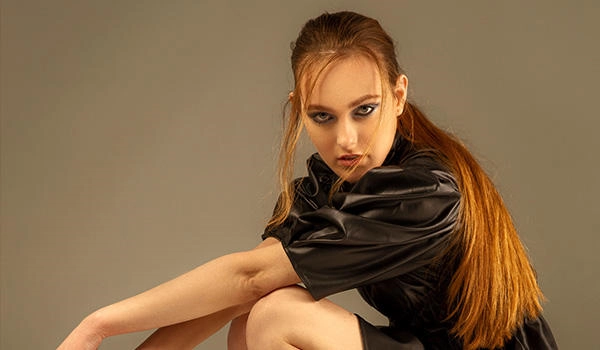
“My advice, is to use all the equipment at uni as you will never be given such an amazing opportunity to practice again. ”
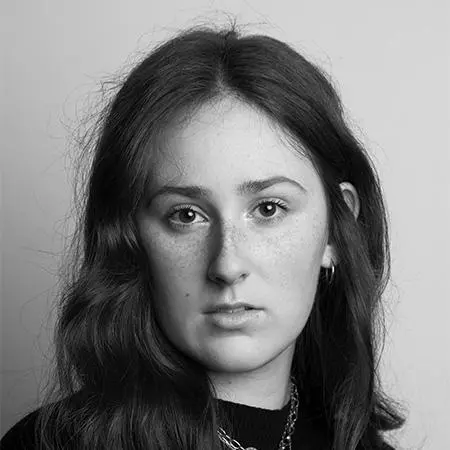
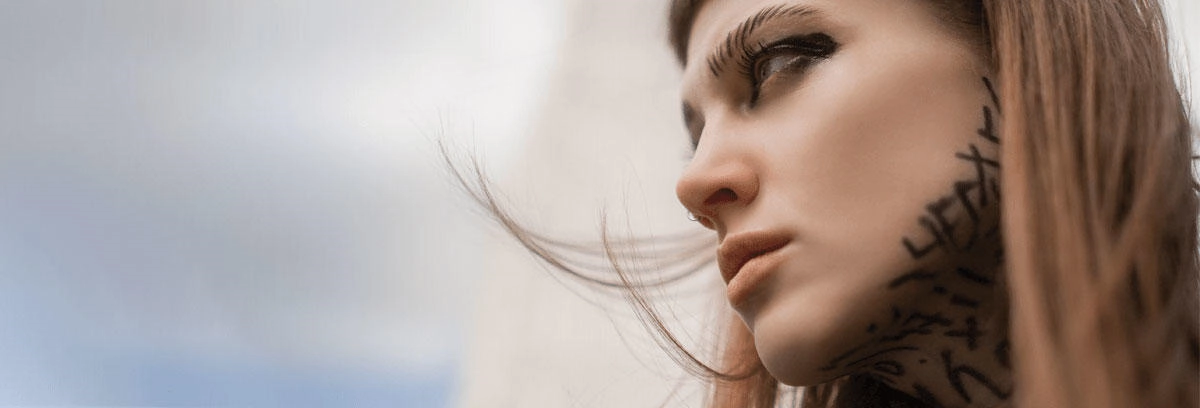
Realise your vision on this innovative course, combining fashion photography, fashion film and multi-media production, and gain the skills to become a confident image creator in the fashion industry.
Contact international admissions
Email: Call:Immerse yourself on this innovative and dynamic course that brings together the disciplines of fashion photography, fashion film and multi-media production, giving you the skills needed to become a confident image-creator within the fashion industry. Combining both cutting-edge and traditional approaches to photography and image-making, this course will provide you with the creative and professional tools to express your artistic identity and develop innovative and imaginative visions for the future of fashion photography.
Throughout the course, you'll explore both digital and analogue photography, moving image and post-production, as well as art direction and shoot management. You'll also have the opportunity to collaborate with students from our other fashion courses, giving you invaluable networking experience.
Throughout your studies you will have access to a range of professional photography facilities to broaden your skills, including photography studios (including a specialist infinity cove), make-up studios, Mac suites, and digital reprographics rooms for high quality professional prints. All of which will help you to build a professional and extensive portfolio.
Employability is embedded into this degree and you will have the opportunity to engage with live projects and interact with creative industry professionals. Additionally, you'll be encouraged gain work experience placements throughout your studies. Final year students are also required to take on micro placements - these could be external opportunities or university-led placements, such as photography studio supervisors, creative experience coordinators and social media managers/content creators for the course's social media platforms.
The course also places a strong emphasis on equipping you with the skills and knowledge required by employers for a wide range of roles within the fashion industry. Many of our alumni have successful careers as freelance creatives, working internationally in a range of image-making roles.
You'll be taught by award-winning industry professionals who have worked with some of the world’s leading fashion magazines, brands and designers, including UK Vogue, US Vogue, Glamour, Alexander McQueen, Paul Smith, ELLE, The Guardian, and The Observer.
Work from our final year students across our fashion-related degrees is showcased at Graduate Fashion Week (GFW). In 2023, final-year student, Kristian Braband was awarded the prestigious Terry Mansfield Fashion Publication Award. Read about Kristian's work and his reaction to winning.
If you’re looking to study our fashion photography and image production degree but don’t have the relevant qualifications or experience, the art and design foundation year will help you develop the core skills and knowledge to progress. Find out more about the art and design foundation year.
Member of:
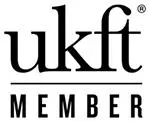
Solent’s Fashion Photography and Image Production programme focuses on giving you a specialist skillset and thorough understanding of the industry, while allowing you to explore and develop your creative practice. The course is perfect for you if you want to experiment and develop your creative and photographic skills.
Applicants will be required to supply a variety of work in a digital portfolio, including sketchbook or supporting material, photography tests and examples, through to written work (essays).
Through the industry-focused skills and knowledge gained on this course, you could find yourself working in an exciting and varied range of creative roles, including fashion, editorial, advertising, production and post-production, digital imaging, video editing, art direction, and picture editing.
Hear from Solent alumni about where their careers have taken them and how studying at Solent prepared them for their future.

“My advice, is to use all the equipment at uni as you will never be given such an amazing opportunity to practice again. ”

The University cannot guarantee any particular members of staff will teach specific aspects of the course in the future, but will endeavour to ensure the teaching team maintains their balance of experience and qualifications.
Access to professional-standard facilities, including a digital reprographics lab, our recently rebuilt colour and black-and-white darkrooms, finishing and film processing rooms, a modern multimedia lab featuring 24 iMacs with Adobe Creative Suite and Final Cut Pro, plus large professional photographic studios and associated make-up and styling rooms.
Course facilities include an extensive media loans programme, providing access to high-end equipment, such as Canon full frame DSLR and mirrorless cameras, medium format digital Phase One and Fuji GFX50S11/GFX100S cameras, along with an extensive range of lenses (including professional lenses and prime lenses). Students also have access to analogue film 35mm, medium format (645, 6x7 and 6x9) and large format 5x4 cameras, plus Profoto B1x, B10 and B2 lighting kits for location photography. The production store is also fully stocked with accessories – light meters, tripods, flash guns, remote-controlled boom-mounted flash systems and more.
Broaden your horizons by adding an international dimension to your CV – essential to achieving success in today’s fast-changing, global environment.
Studying, working or volunteering in another country could be the experience of a lifetime. Enhance your degree by developing important global skills such as knowledge of other countries, language skills, intercultural awareness, adaptability and confidence.
For more information, please email international.mobility@solent.ac.uk.
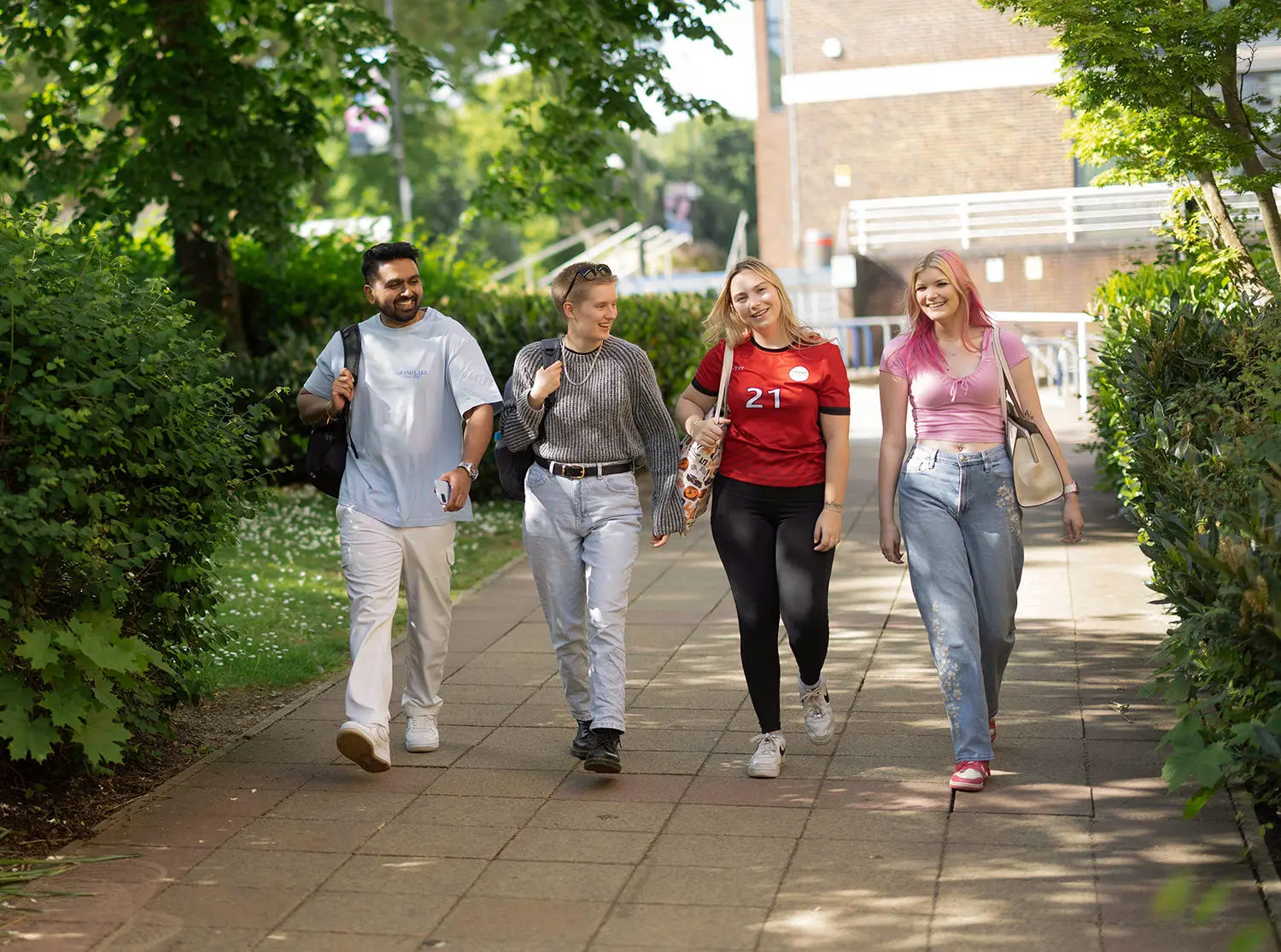
Metamorphosis introduces students to creative exploration through hands-on, practice-led workshops and foundational research skills. As your first university experience, this module builds confidence, community, and creative identity while allowing broad experimentation. You'll develop practical abilities, understand research-informed practice, and produce a portfolio demonstrating progression across diverse creative disciplines.
In this module you'll be introduced to the creative challenges of communicating ideas within contemporary art and design through a themed, practice-led project where you'll develop concepts through hands-on research, experimentation and visual exploration, mirroring real-world creative processes. By engaging with techniques such as mark-making, surface design, mood-boarding and contextual investigation, you'll build the foundational skills and confidence needed for specialist study.
In this module, you'll collaborate with students on other creative foundation years. You'll begin to explore the professional world of creative practice via an introduction to the soft and hard skills that cut across the creative industries, by investigating future pathways and opportunities, and by kickstarting a personal narrative about your own role in the creative industries sector.
As the final module on the foundation programme, this module showcases the diversity of creative skills represented across the creative foundation courses and gathers these skills together in the end-of-year showcase. You will use your specific skillset to contribute to this overall project - cross-disciplinary collaboration is encouraged. The showcase is your opportunity to share your project with key partners and celebrate your contributions with their fellow creative foundation students.
This module will expand your understanding of past and contemporary contexts while developing core skills in research, concept development, and shoot planning. By studying diverse image-making approaches and fashion theory, you will gain essential knowledge of the techniques, practices, and collaborative roles that drive successful fashion imagery.
The aim of this module is to change the way you look at fashion images to better understand the power of visuals and their place in the world. You will look at fashion and beauty imagery from a theoretical point of view and use this deeper understanding to support the creation of your own practical work.
This module introduces you to the creative, technical, and collaborative processes behind producing professional fashion shoots for editorial fashion publications. You will learn how to conceptualize, plan, style, photograph, and deliver a fashion story tailored to both brand identity and audience.
This module offers a practice-led introduction to the core subjects and skills required for producing beauty focused imagery for editorial and advertising contexts. Through lectures, group seminars, and technical workshops, you will develop an informed understanding of trend driven visuals and the cultural influences shaping contemporary beauty media.
This shared, interdisciplinary module provides a 'launchpad' for students across our fashion courses, to collaborate on a live brief - mirroring the professional creative team environment. This client-focused module will give you the confidence to get out into industry and give you the ability to apply the skills gained during your first year of studies.
The module will help you understand how narrative has always been a powerful and evocative aspect of fashion photography, and of visual art in general. You will also explore how moving image has become an essential skill across all creative industries. Practical learning includes skills shared across filmmaking and still image making: concept development, story boarding, pre-planning, shooting, pacing and editing.
In this module you investigate the fashion photography industry and explore how fashion photographers draw inspiration from varied historical, contemporary, and contextual sources to inspire their work. During the module you'll enhance your existing photographic skills and increase your knowledge of different areas of the industry, enabling you to work within set parameters within these areas.
This module provides an essential opportunity to critically engage with the complex political, social, and cultural landscapes that shape the contemporary fashion industry. Students will be able to choose a cultural, political, or social issue that they are passionate about, investigate it, and express their thoughts and feelings about it through a variety of media.
You will bring together all the skills and knowledge you have gained throughout your time on the course to prepare a considered proposal that is the basis for your final major project and that gives you the opportunity to experiment and develop your ideas through practical testing and research. It is your opportunity to tailor your own project and focus on the areas that interest you most and best support your career aspirations.
This module will support you in refining your career direction by critically assessing current industry practice and your own body of work. By identifying your strengths and areas of development in relation to your chosen industry direction, you'll build professional confidence and establish a link between academic study and professional application. You will be required to gain some work experience hours, that you will reflect on in a later module.
In this module you'll build on the research and understanding gained in the Professional Perspectives module. You will use your specialist skills to define and create a substantial, high-quality portfolio of new work that directly responds to your chosen area of industry, along with a focused ‘graduate career file’ to support you after graduation.
You’ll be able to showcase your breadth of skills and knowledge, gained during your studies, by undertaking in-depth research, development and practice throughout your major project. You’ll create a substantial project that focuses on your area of professional interest and showcases your specialist skills. This could be a body of editorial work, a series of films, photography publication, or even an installation project.
Contact international admissions
Email: Call:As part of this course, you will study one module at a time, giving you the chance to build a deeper understanding and see the results of your hard work more quickly. With regular assessments and feedback, rather than exams all at once, you’ll also benefit from improved focus, and a more manageable workload.
Learn more about block teaching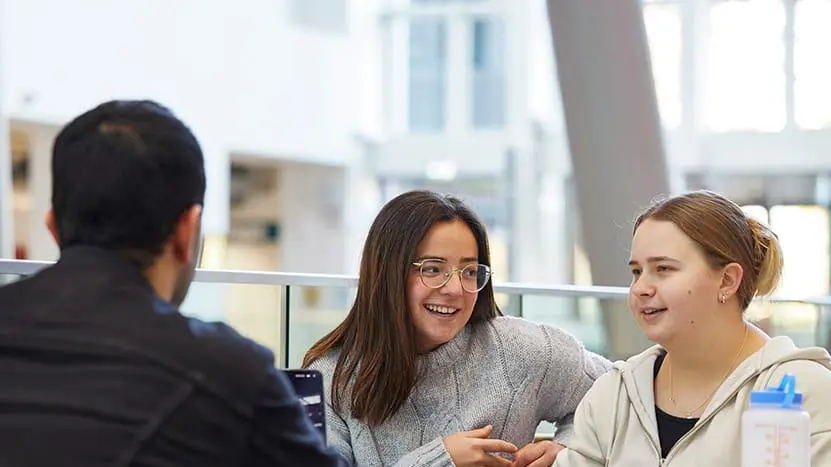
The student achievement team are on hand to help you succeed during your studies at Solent. They aim to contact you at key times during your time here with personalised information, advice and guidance, by email or phone.
The disability advice team provides information, advice and guidance for disabled students.
All students can access Succeed@Solent, Solent's online guide to getting better grades. It offers extensive, practical information and advice on topics such as academic writing, research and presentations.
The UK is the third largest apparel and footwear market worldwide, after China and the United States, with a market size of approximately £57.92 billion pounds. (Euromonitor International).
Through the industry-focused skills and knowledge gained on this course, you could find yourself working in the exciting areas of fashion, editorial or advertising in the creative areas of fashion photography, art direction, styling, and video production.
By gaining industry-focused skills and knowledge facilitated by this course, graduates may position themselves for employment opportunities within dynamic sectors such as fashion, editorial, or advertising. This encompasses various creative fields including fashion photography, art direction, styling, and video production.
There are also opportunities outside of fashion from retail and photojournalism to sport and live performance - businesses in a wide variety of industries depend on professional photographers to properly market their products. These positions can range from freelance contract work to full-time, in-house employment.
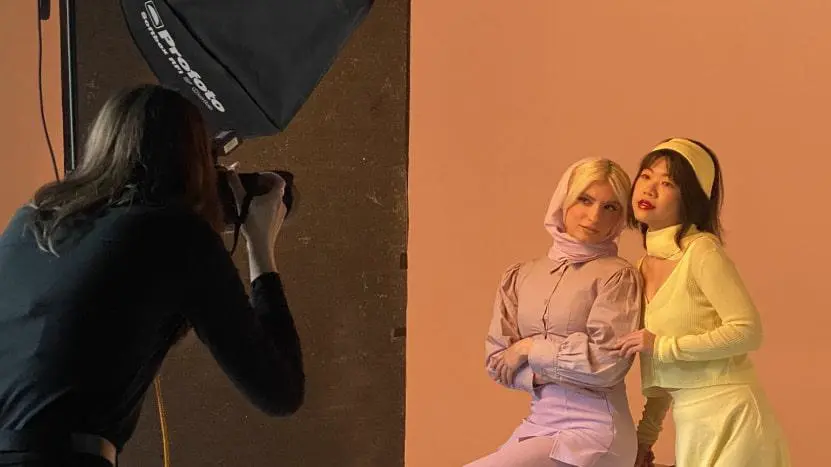
Senior stylists: £23,000 and £30,000
Employed junior stylists can expect to earn in the region of £18,000 to £20,000. Senior stylists earn higher salaries of between £23,000 and £30,000. Being a freelancer is very common in this industry, and as a freelancer you'll be paid either a daily or hourly rate. An assistant stylist can earn anything from £50 to £150 per day, but if paid hourly, this is in the region of £7.70 to £8.20 per hour.
Typical salary: £16,000 to £22,000.
Many entrants to the profession start as assistants, where salaries can be set at the national minimum wage. In full-time employment, early career salaries are typically between £16,000 and £22,000. Salaries can increase to anywhere from £25,000 to £65,000. The top end of the scale is typically for those who have a strong reputation and are highly sought-after, which takes years of experience.
The stated salaries are published on prospects.ac.uk.
Hear from Solent alumni about where their careers have taken them and how studying at Solent prepared them for their future.

“My advice, is to use all the equipment at uni as you will never be given such an amazing opportunity to practice again. ”

The Solent Careers team is committed to getting students into great careers.
While you are studying, the team can help you with finding work experience or placements, link you with a mentor, check your CV, or offer one-to-one guidance.
We also have graduate job opportunities just for Solent graduates.

6th
UK uni for sustained employment
Longitudinal Educational Outcomes, 2022
Every student at Solent University will also have the option to study an additional Certificate in Practical Artificial Intelligence qualification alongside their course. Free of charge, the course ensures you'll be prepared for a fantastic and varied career after graduation.

Thinking about studying further than an undergraduate degree? Alumni can get 20% off their postgraduate study.

Take charge and lead a wealth of fashion and beauty brands to success with your innovative and creative vision on this practice-based master's degree.
Find out more
Do you have an eye for design? Would you like to help influence the future of visual communications? Our MA Visual Communication degree is ideal for creatives keen to refine their practice, working as part of an interdisciplinary group of students.
Find out moreThe tuition fees for the 2026/27 academic year are:
For further information, please visit our tuition fees page.
While most course costs are covered by your tuition fees, some essential resources and optional extras may need to be paid for separately. These additional costs are listed below. For advice on budgeting and managing your money, please contact student.funding@solent.ac.uk.
The 2026/27 additional costs are not yet available. For guidance, previous additional costs have been:
Compulsory costs
Optional costs
Solent University offers a range of bursaries and scholarships that provide financial assistance or waive fees for tuition or accommodation. Each bursary or scholarship has specific eligibility criteria. Check out our bursaries and scholarships pages to find out more.
Cost of living support
At Solent, we understand that the cost of living crisis may be of some concern. To help, we've put together some detailed information to show what support is available and how to make your money go further.
Graduation costs
There is no charge to attend graduation, but you will be required to pay for the rental of your academic gown (approximately £45 per graduate, depending on your award). You may also wish to purchase official photography packages, which range in price from £15 to £200+. Graduation is not compulsory, so if you prefer to have your award sent to you, there is no cost. Extra guest tickets will go on sale after results publication and will be sold on a first-come-first-served basis. The cost per ticket is currently £20. Please note, we do not guarantee there will be any extra tickets available to purchase.
Contact international admissions
Email: Call:Please select an option below:
As a general guide, we look for qualifications that are equivalent to the British high school A-levels.
Applicants from outside the UK will be required to submit an electronic portfolio for consideration.
If you are applying from outside the UK, find information about entry requirements, visas and agents for your country here.
For further information about EU qualifications, please see our course entry requirements document.
For international students who do not meet the direct entry requirements for this undergraduate degree, our trusted partner, QA Higher Education offers the following pathway programme designed to develop your academic and English language skills:
As a general guide, we look for qualifications that are equivalent to the British high school A-levels.
Applicants from outside the UK will be required to submit an electronic portfolio for consideration.
If you are applying from outside the UK, find information about entry requirements, visas and agents for your country here.
For further information about UK, EU and international qualifications, please see our course entry requirements document.
For international students who do not meet the direct entry requirements for this undergraduate degree, our trusted partner, QA Higher Education offers the following pathway programme designed to develop your academic and English language skills:
All international applicants need to be aware that the English language requirements to attend Solent University, and the English language requirements to obtain a visa from the Home Office, may be different. This means that if you meet the Solent University language requirement to gain a place on the course, you may still have to meet additional requirements to be granted with a visa by the Home Office.
We strongly advise all applicants to visit the Home Office website which outlines all the requirements for a successful visa application.
Full-time
Any student applying for the first year of a full-time/sandwich undergraduate course must apply through UCAS (University and Colleges Admissions Service). This includes mature, overseas and EU students.
Nearly all schools and colleges offer their students the facility of applying electronically through the UCAS website using 'Apply'; it may also be used by those applying independently in the UK and overseas. This facility and all course information can be found on the UCAS website: www.ucas.com.
Your application should reach UCAS by 31 January if you hope to enter a course the following autumn. Early application is advised for the most popular subject areas. Late applications may be made until the end of June. The UCAS Code for the University is S30, code name SOLNT.
Find out what happens after you apply
Contextual offers
Solent endeavours to offer learning opportunities to students from all backgrounds. When we receive and review an application, we take into consideration the context and personal circumstances of applicants when making a decision, which means our advertised entry tariff could be reduced.
Find out more about Solent's contextual offers
Top-up route:
We welcome applications from students currently studying a Foundation Degree, DipHE, HNC, HND or modules of an undergraduate degree course at another university, who wish to enter directly into Years 2 or 3 of one of our undergraduate degree courses. Please contact our admissions team for more information: contact us
Applicants who do not have English as their first language will be required to demonstrate an approved level of proficiency in the use of the English language. The agreed minimum requirements for this course are:
TOEFL IBT tests taken prior to 21 January 2026
TOEFL IBT tests taken from 21 January 2026
Qualifications are checked before enrolment, and international students must bring their original certificates or certified copies when coming to study at the University.
Pre-Sessional English programme
The University also offers a pre-sessional English programme for international students who wish to improve their level of English before starting a degree course.
Contact international admissions
Email: Call: